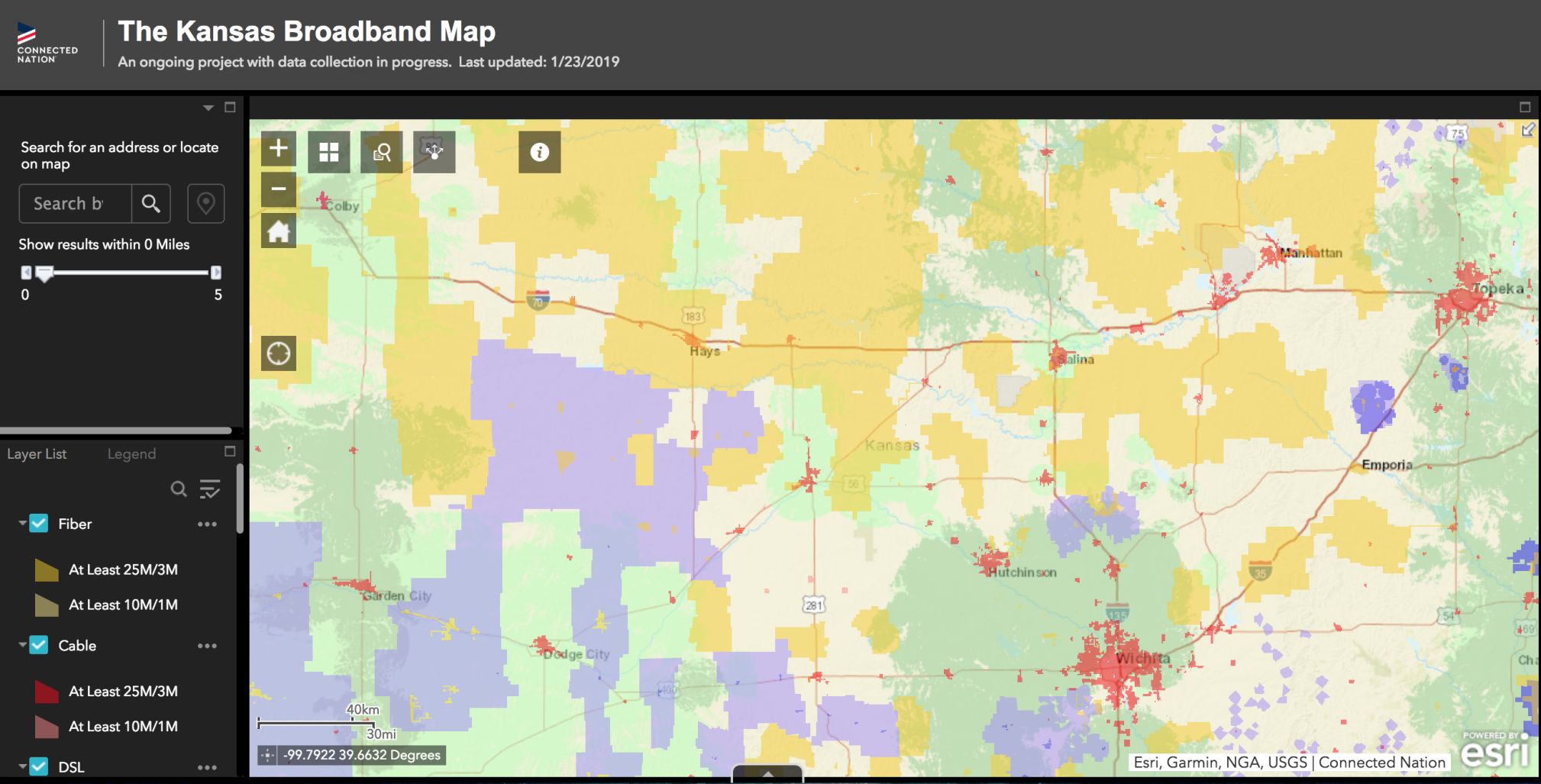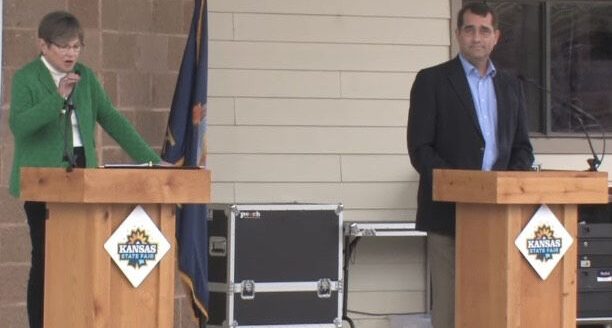During his keynote address at the Rural Opportunities Conference April 2, Kansas Lt. Gov. Lynn Rogers shared Gov. Laura Kelly’s vision for growing rural prosperity in the state.
“Studies have told us that to have a vibrant rural community, we need to have access to health care, education, schools, adequate housing, grocery stores and broadband,” Rogers said.
The 2019 conference was held at Boot Hill Casino & Resort Conference Center in Dodge City, Kansas, April 2 and 3.
A former Kansas state senator, Rogers spent more than 30 years in agricultural banking, working with farmers and ranchers through the Farm Credit System. He grew up on a small farm in eastern Nebraska. Rogers said rural America is part of his DNA, and his background helps him understand the benefits and challenges of living in rural Kansas.
“Last year when I was joining the campaign with Gov. Kelly, what I really realized is no matter where you’re at traveling—from Seneca to Goodland, Baxter Springs to Liberal—there were thousands of Kansans that we talked to that were very, very frustrated…because they didn’t feel like Topeka listened to them.” Rogers continued, “They often didn’t feel like they have a seat at the table.”
He acknowledged that many state agencies have closed offices in rural Kansas, which also makes rural residents feel disconnected. Rogers said he and Kelly want to change that and raise the visibility of rural issues.
“I think rural Kansas is an important part of our economy,” Rogers said. “And when rural Kansas is vital and is prosperous, urban Kansas can be prosperous.”
The governor’s office of rural prosperity, led by Rogers, aims to focus on the following seven areas:
1. Rural housing;
2. Revitalizing Main Street corridors;
3. Investing in rural infrastructure, including broadband;
4. Supporting rural hospitals;
5. Making state government work for rural Kansas;
6. Incentivizing active tourism; and
7. Supporting agribusiness.
Broadband a top priority
Rogers said broadband is one of the team’s top priorities for improving the lives of rural Kansans. At the conference, he announced the first iteration of the broadband availability map for state of Kansas.
“We know that high-speed broadband is no longer a luxury. It’s a necessity if you want to do business—whether it’s agriculture or any other type of business in America—and it’s an economic necessity for our entrepreneurs. And it’s really an accessibility issue for all of Kansas.”
He said the new broadband availability map, available at https://connectednation.org/kansas/interactivemap, will help the governor’s team set priorities about where broadband expansion needs to happen.
Rogers explained Connected Nation will be deploying network engineers to validate the data on the map, guided by public feedback. Connected Nation will then update the map in July. Kansas residents are encouraged to submit feedback about issues such as broadband availability, speed and pricing at https://connectednation.org/kansas/feedback.
Listening tour underway
Rogers said his team is also conducting a rural prosperity listening tour. The first phase is a rural health care tour to help the legislature understand the importance of passing a Medicaid expansion bill, which would bring in millions of dollars to rural Kansas, he said. Medicaid expansion legislation recently passed in the House, but it has yet to be debated on the Senate floor.
The second phase of the listening tour will involve visiting schools, community events and businesses in 10 different areas of Kansas and asking three questions:
1. What is prosperity to your community?
2. How do we make that happen?
3. Are there policies, regulations or rules that need to change at the state level to make that happen or to make it better?
Rogers emphasized, “I do want to say to each and every one of you that rural Kansas has a seat at the table, and they will during the entire Kelly-Rogers administration.”
Partnering with rural communities
During his remarks April 2, Secretary of Commerce David Toland received a standing ovation after telling the crowd, “Let me tell you, I am very glad to be here.”
On April 1, the Kansas Senate voted 23-14 to confirm Toland as the commerce leader, though a divided Senate commerce committee had contested his appointment and did not recommend his confirmation to the Senate body.
Toland appeared unfazed by the controversy and is eager to move forward with his team.
“We are going to be the best partners that we can possibly be to our rural communities. And that means not just talking about rural issues but showing up in a meaningful way and delivering,” Toland said.
“We have lots of commonalities, but what you need in Iola is different from what you need in Paola. What Salina needs is entirely different from Ness City, and yet we are all rural.”
Sharing success stories
Toland joined Rogers and Marci Penner, executive director of the Kansas Sampler Foundation, for a panel discussion following Rogers’ keynote address.
Moderated by Deputy Secretary of Commerce Patty Clark, the group discussed the importance of community leaders, state government and other stakeholders sharing their success stories and what rural communities need.
Toland said, “We are not doing a good job statewide of telling positive stories, and there are many of them.” He continued, “We need to be loud and proud about who we are in rural Kansas and the positive things we have going on.”
Though there are no one-size-fits-all solutions to the challenges facing rural Kansans, Toland said they hope to build on individual communities’ successes and replicate promising models elsewhere in the state.
Toland said, “The solution here is not going to come from state government. It’s going to come from all of you out in the state telling your story to one another—telling your story to us.”
Rogers said they don’t want to have a “silo mentality” and need to make sure they have tourism and wildlife, commerce, ag marketing and other state agencies working together for solutions.
He also stressed that communities need to be willing “to let younger people lead and take over.”
It’s important to let young people know you’re interested in their perspective, Rogers said. Keep in touch with them and keep communicating.
Toland echoed the idea of asking and encouraging young people to come back to rural communities, saying that the reason he moved home to Kansas from Washington, D.C., is that someone asked him to.
He said that although some define success by how far you get away from home, “success can be measured by being able to come home and have a positive impact in your community.”
Penner would like to see high school students who are excited about their rural communities gather together with the Kansas Sampler Foundation’s “PowerUps,” 21- to 29-year-olds who are rural by choice to talk about what they are doing and want to see in their communities and in the state.
“That’s part of the beauty of rural is that you can make a difference—one person, whether it’s a high schooler or a young person,” Penner said.
“We can change how this state looks. And we can do it now, and I’m so excited.”
Shauna Rumbaugh can be reached at 620-227-1805 or [email protected].



